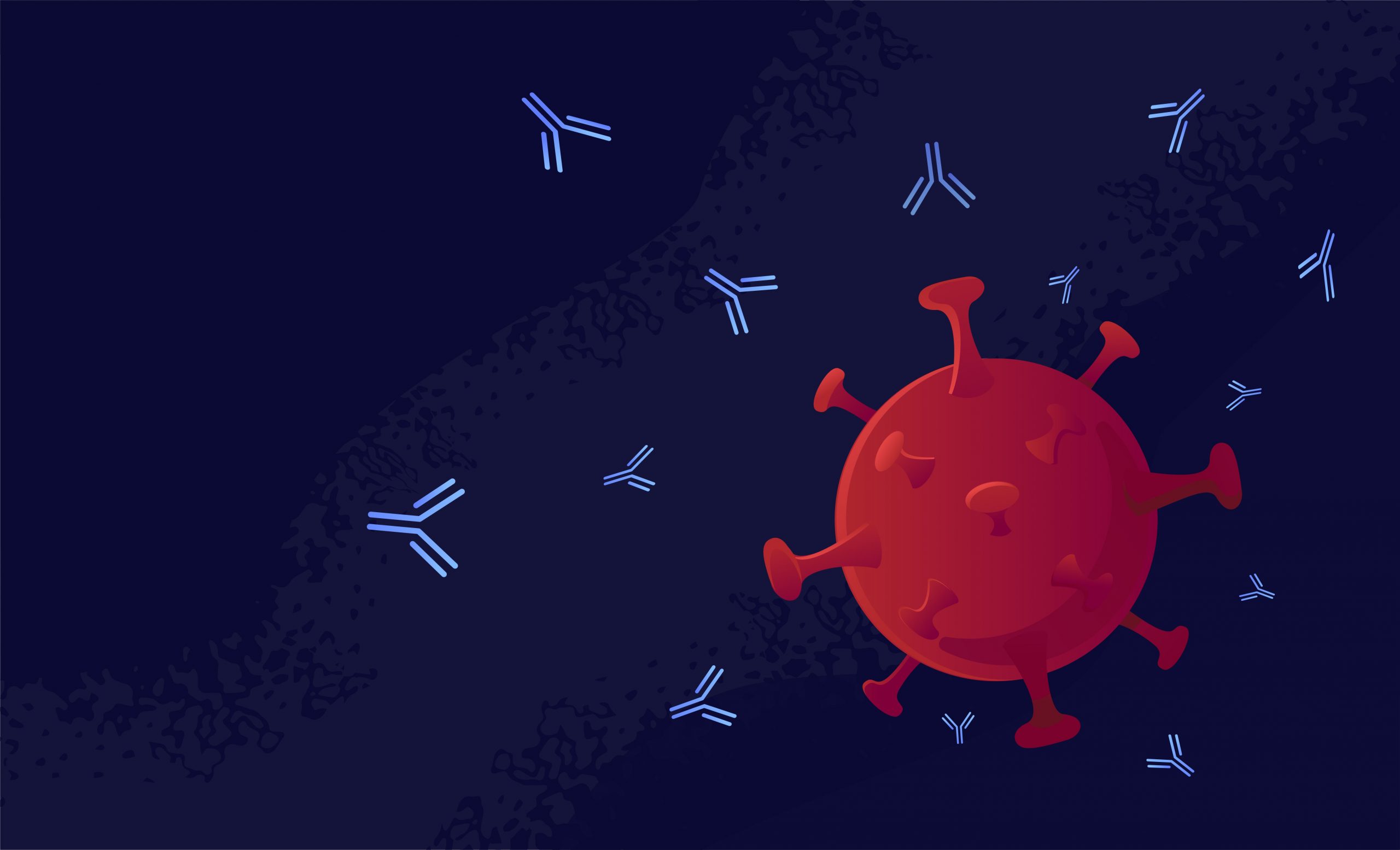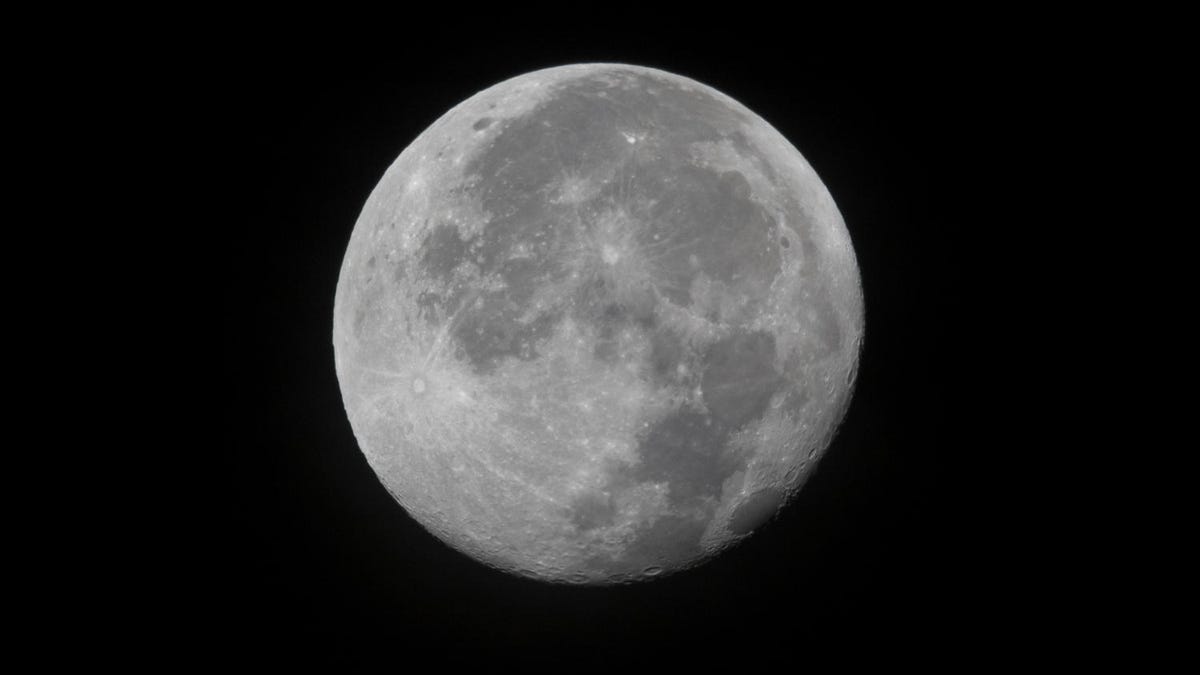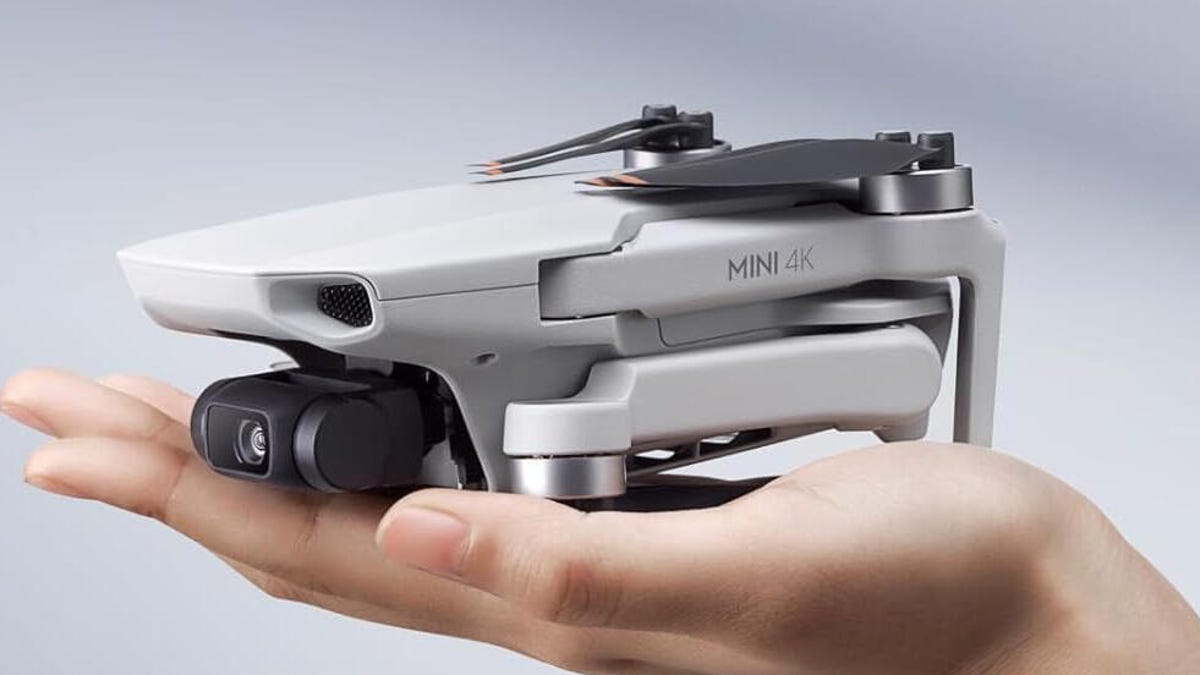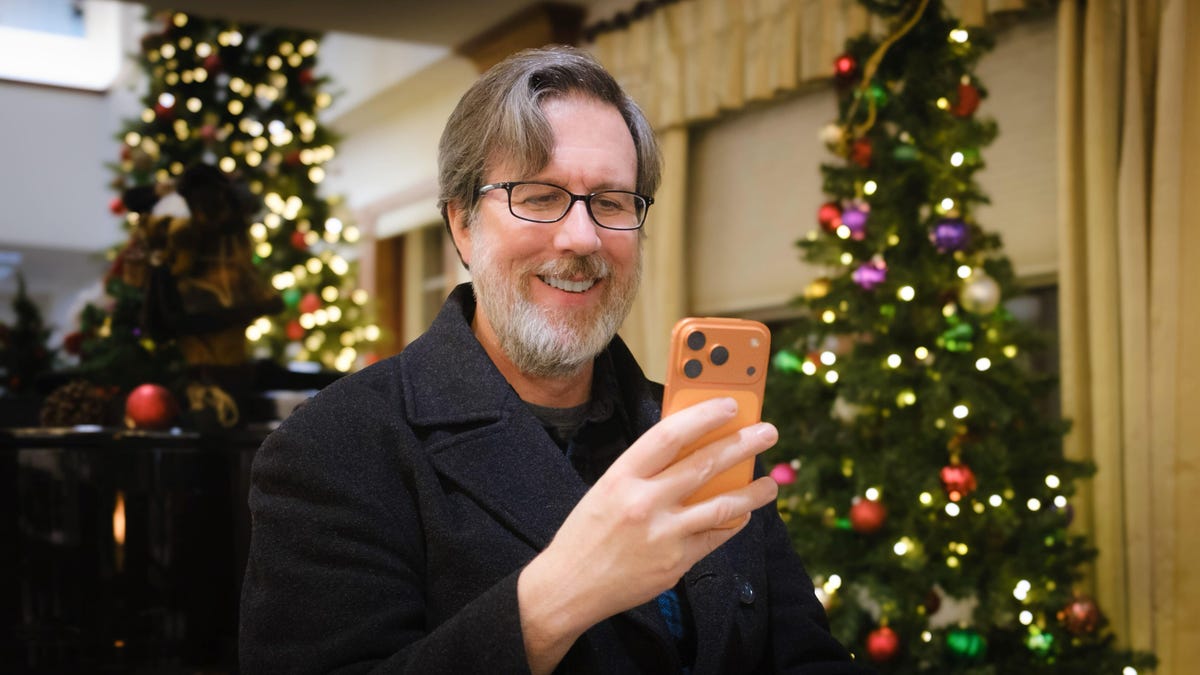Technologies
Regen-COV might work before COVID exposure, trial shows: What to know about monoclonal antibodies
Monoclonal antibodies can greatly reduce hospitalization rates in people most at risk of severe COVID-19.

Monoclonal antibody therapy for COVID-19 is available to people in the US for free who are at higher risk of severe disease in the first few days of their illness, or after they’ve been exposed to the coronavirus. The treatment — lab-made antibodies given to a person that help their immune system stop the infection from spreading — has proven to be a key tool for preventing the coronavirus from turning into severe illness. Preliminary research shows the treatment reduces risk for hospitalization or death by about 70%.
Now, early research is showing the treatment may benefit people much earlier on, before they’ve even been exposed to the coronavirus. Regeneron, one of the drug-makers of the antibody treatments, announced Monday that its drug was 81.6% effective in preventing COVID-19 in a trial period of two to eight months post-treatment. The drug in the study, which is called Regen-COV and was given to participants in a series of four injections, is the same drug as the one currently authorized for use on at-risk people who are in the early stages of COVID-19, and on some people who’ve been exposed to it.
Dr. Myron Cohen, who leads the monoclonal antibody efforts for the National Institutes of Health’s COVID Prevention Network, said in a news release Monday that the results from the drug-maker are «particularly important to those who do not respond to COVID-19 vaccines, including people who are immunocompromised.»
Regen-COV isn’t authorized yet for use in anyone who hasn’t been exposed to or is sick with COVID-19. A few monoclonal antibody therapies, including the one made by Regeneron, have emergency use authorization by the US Food and Drug Administration and should be accessible in doctors’ offices or even some state-run clinics, as seen in states such as Florida and Texas.
Importantly, monoclonal antibodies don’t replace the role of the COVID-19 vaccines in preventing hospitalization and death. According to data from August by the US Centers for Disease Control and Prevention, unvaccinated people were more than 11 times more likely to die from COVID-19 and about 6 times more likely to contract COVID-19 than fully vaccinated people.
A large number of Americans could be eligible for monoclonal antibody treatment if they test positive for COVID-19 (a smaller number would be eligible for the treatment without a positive test, and only a confirmed exposure). For example, everyone age 65 or older, people who are overweight, people with heart, liver, or kidney disease and many more would be eligible for the treatment in the early days of their symptoms.
Here’s what we know now about COVID-19 monoclonal antibodies.
What are monoclonal antibodies, and how do they work?
Monoclonal antibodies are lab-made antibodies that work by binding to bacteria, cancer cells or viruses the way natural antibodies do, stopping them from infecting more cells. The first monoclonal antibody therapy was approved more than 30 years ago and has been used for other illnesses, including the Ebola virus.
Monoclonal antibody treatments for COVID-19 are used before a person gets really sick, usually within 10 days of their first symptom, to prevent hospitalization. The treatment is only approved for people who are at risk of getting extremely sick — those who are age 65 or older and those who have «certain medical conditions,» per the FDA. The same treatment isn’t recommended for people who are already hospitalized with COVID-19.
Monoclonal antibody therapy is also authorized if an at-risk person is exposed to COVID-19, but the definition of «at-risk» in this instance, per the FDA, is a little narrower and reserved for people who are at risk because of a medical condition and unvaccinated or not fully protected by the COVID-19 vaccines because of an immunocompromising condition.
Read more: Pfizer says its COVID-19 antiviral pill reduces risk of serious illness
I tested positive. How do I know if I’m eligible?
If you come down with the coronavirus and are concerned about how the disease will affect you, contacting your doctor to learn your options and the best line of treatment for you is a good idea. But, in general, this specific treatment is reserved for people who are at risk for severe disease. Most people who are infected with COVID-19 will recover at home without medical help.
The people who test positive for COVID-19 and would be eligible or benefit from monoclonal antibody therapy may also be the same people who are eligible for COVID-19 vaccine boosters because of a medical condition. For those who are at risk of severe COVID-19 and would be eligible for monoclonal antibodies if they test positive (if they’re at least 12 years old and weigh at least 88 pounds) the FDA defines «at risk» under the EUA as:
- All people age 65 and older.
- People with obesity or those who are overweight (adults with a BMI of more than 25, and children age 12-17 who have a BMI at the 85th percentile or greater).
- Pregnant people.
- People with cancer.
- People with chronic kidney or lung disease.
- Individuals with cardiovascular disease or hypertension.
- People with diabetes.
- People with sickle cell disease.
- Those living with neurodevelopmental disorders.
- People who are immunocompromised or taking immunocompromising medication.
- Those who have a «medical-related technological dependence» (such as a tracheostomy or gastrostomy).
However, the FDA stressed in a fact sheet for Eli Lilly’s treatment (another brand of monoclonal antibodies) that this isn’t a complete list, and other medical conditions or factors including race or ethnicity may also place individuals at higher risk for severe COVID-19. It also pointed to the CDC’s list of «people with certain medical conditions» for other health conditions, which includes things such as depression and Down syndrome as being high-risk conditions.
In sum: If you test positive and feel you are at risk for severe COVID-19 and might qualify for monoclonal antibodies, you should probably speak to a health care professional about them.
Does vaccine status matter?
No, people who test positive for COVID-19 and are eligible for monoclonal antibody therapy because of their age or health condition can be treated regardless of their vaccination status. That is because, while still protective, the vaccines may be less effective at preventing severe disease in some people than others.
However, being unvaccinated might make you eligible for monoclonal antibodies after an exposure to someone with COVID-19. According to the FDA’s authorization of Regen-COV for post-exposure, people eligible for post-exposure treatment must be at risk of severe COVID-19 disease, and either unvaccinated or vaccinated but immunocompromised or taking immunocompromising medications.
I qualify. How do I access the treatment?
Monoclonal antibodies are administered by IV (most commonly) or by injection, so they’re not a prescription you can easily pick up at the pharmacy. According to CNN, the infusion process takes about an hour and patients need to wait a while to be observed for side effects. If you’re at risk for severe COVID-19 and you’ve tested positive or think you have it, ask your doctor where the treatment is available.
If you live in Texas or Florida where there are state-run monoclonal antibody treatment centers, the same eligibility requirements for patients apply. In Florida, this means everyone age 12 and older who is at «high risk for severe illness» can make an appointment and find a monoclonal treatment center at one of the state’s eight locations. In Texas, there are nine antibody infusion centers across the state, but at-risk people need a referral from their doctor.
If you think you qualify for monoclonal antibody treatment but don’t have a health care provider, you can call the Combat COVID Monoclonal Antibodies Call Center at 1-877-332-6585. You can also use this link from the US Department of Health and Human Services antibody therapy finder.
Do monoclonal antibodies interfere with the coronavirus vaccines?
If you were treated with monoclonal antibodies and you haven’t been vaccinated yet, you should wait 90 days after your treatment to make an appointment, according to the CDC. This recommendation is until more is known about how the antibody response from the treatment affects the immune response from getting vaccinated.
The information contained in this article is for educational and informational purposes only and is not intended as health or medical advice. Always consult a physician or other qualified health provider regarding any questions you may have about a medical condition or health objectives.
Technologies
The New Year Will Kick Off With a Supermoon. Here’s When to See It
January’s Wolf Moon will be the final of four consecutive supermoons.

Supermoons tend to come in packs, and Earth has just experienced three of them in a row, dating back to October. The final supermoon of this sequence is happening on Jan. 3, and it also happens to be the first supermoon of 2026. Skygazers will want to catch this one, since the next one won’t occur until next November.
Don’t miss any of our unbiased tech content and lab-based reviews. Add CNET as a preferred Google source.
The moon tends to spend three to four months at a time in perigee, a fancy term that means it’s as close to Earth as its elliptical orbit will allow. During this time, humans refer to full moons as a supermoon. Since the moon is physically closer to Earth than it normally is, a full moon appears brighter and larger in the sky.
The difference can be a moon that is up to 14% bigger and 30% brighter than a micromoon, which occurs when the moon is at apogee, or the furthest point away from Earth. That brightness is the real differentiator, as a supermoon is bright enough to light up your backyard, especially if there is snow on the ground.
The odds of this are pretty good, as it is expected to snow in a few parts of the US between Christmas Day and New Year’s Eve.
To see the moon at its brightest, you’ll want to stay up late on Jan. 2 or wake up very early on Jan. 3. According to The Farmer’s Almanac, January’s supermoon will rise from the eastern horizon and streak across the sky to settle in the west around sunrise. The moon will reach peak illumination at 5:03 a.m. ET. It should still be dark outside for the entire US during this time, so everyone will have a chance to see it.
If you can’t due to weather or other engagements, the Wolf Moon will be over 90% full from Dec. 31 through Jan. 5, which gives you almost a week at near-maximum illumination.
Since the moon is the largest and brightest object in the night sky, you also won’t need any special magnification devices to see it. However, a good pair of binoculars or a telescope makes the moon’s surface details easier to see, and helps photographers take some impressive moon shots.
The full moon in January is commonly called the Wolf Moon, and it’s due to increased activity from wolves during this time. Not only does January mark the beginning of the wolf’s winter mating season, but wolves are also typically more active during the dusk and dawn hours, and dusk happens pretty early in the day, right after the winter solstice. In the old days, this meant that people were much more likely to see a wolf or hear wolves howling during January.
Technologies
The FCC’s Foreign Drone Ban Is Bad News for Anyone Who Wants a DJI Device
The US government is making good on an anticipated ban on the import of foreign-made drones, including those from the world’s top seller.

If a DJI drone was on your list to buy going into 2026, you might want to act quickly. The Federal Communications Commission has made good on an anticipated ban on the import of foreign-made drones, including those made by DJI, the world’s top seller of the flying devices.
The FCC on Monday added uncrewed aircraft systems and their components that are produced in a foreign country to its Covered List, a record of gear and services deemed to «pose an unacceptable risk to the national security of the US.»
According to the FCC’s public notice, that includes but isn’t limited to data transmission devices, flight controllers, sensors and cameras, batteries, motors and other drone components.
Don’t miss any of our unbiased tech content and lab-based reviews. Add CNET as a preferred Google source.
In late October, the agency voted 3-0 to «close loopholes» that allow tech deemed a «national security risk» to be sold in the US. In plain English, the US government cleared the path to give DJI the same treatment it gave Chinese phone-maker Huawei, effectively banning its products from the American market.
In a statement, DJI said it was disappointed by the decision. «While DJI was not singled out, no information has been released regarding what information was used by the Executive Branch in reaching its determination,» a spokesperson said. «Concerns about DJI’s data security have not been grounded in evidence and instead reflect protectionism, contrary to the principles of an open market.»
DJI said it remains committed to the US market and that it’s possible future products could be cleared for launch here at the discretion of the Department of Defense and Department of Homeland Security.
Drones already in the hands of US consumers aren’t impacted: «This action does not affect any previously-purchased drone. Consumers can continue to use any drone they have already lawfully purchased or acquired,» the FCC said in a fact sheet about the change.
In its announcement, the government cited upcoming high-profile events including 2026’s FIFA World Cup and the 2028 Los Angeles Summer Olympics as mass-gathering events that could be put at risk by drones.
«The federal government is taking additional actions to safeguard Americans and restore American airspace sovereignty,» the FCC said.
The FCC has also been considering a separate ban on TP-Link routers, but that was not included in this December update to its Covered List.
DJI asked for a security audit before any ban
In October, DJI told CNET that the FCC appeared to be making its decision «without any evidence of wrongdoing or the right to appeal.»
Adam Welsh, head of global policy at DJI, said the company has repeatedly said it would be open to audit, but that «more than 10 months have now passed with no sign that the process has begun.»
«The US government has every right to strengthen national security measures, but this must go hand in hand with due process, fairness, and transparency,» Welsh said at the time.
Will DJI drone owners need to give them up?
Because the ban applies to new sales, not drones that have already been sold, a DJI drone you already own is still be legal to use — at least under current rules.
Government agencies, however, were already prohibited from purchasing or using drones from Chinese companies, including DJI.
DJI’s drones consistently rank high in their product category. In January, they dominated CNET’s list of best drones for 2025. But some of the company’s newest products, such as the DJI Mavic 4 Pro, haven’t been available for sale in the United States.
Even before the policy change, some DJI products were hard to find. The website UAV Coach has posted a guide to the bans and reports that, due to inventory issues, most DJI drone models were sold out at retailers.
Technologies
AT&T Just Revealed Which Holiday Has the Most Calls. And No, It’s Not Christmas.
You might be able to guess the biggest texting day of the year, but the Holiday with the most phone calls gave me chills.

The holidays are a time for connecting with friends and family, either by gathering in person or checking in remotely. So, naturally, you might think phone calls would be at their highest during the festive stretch at the end of the year. But according to new figures shared with CNET by AT&T, another holiday got the highest number of calls in 2025. Which one?
The answer might give you chills: AT&T’s subscribers conjured up around 651 million phone calls on… Halloween. The company shared no other data besides the massive number, leading me to wonder why the spooky season inspired so many calls. Lost trick-or-treaters calling their parents for rides? People in costumes at parties accidentally butt-dialing their friends? Poltergeists pilfering people’s phones? Only the spirits truly know.
Despite that one-day call volume, texting is vastly more popular than phone calls over the course of the year. Through Dec. 9, 2025, the network registered almost three times more texts than calls: 525 billion texts sent vs. 181 billion calls made during the year.
And the top texting day? Dec. 1, 2025, with around 2.3 billion (specifically 2,264,041,461) messages sent.
These figures represent traffic on AT&T’s mobile network, which does not include its home or business broadband services. And, of course, it’s a snapshot of just one provider. AT&T has around 119 million subscribers, according to Wikipedia.
When you’re looking at phone plans, even unlimited phone plans, using tens of gigabytes of data during a month sounds like a lot. But at the network level, the scale is staggering, even in limited areas.
For example, AT&T also broke out its three largest data events in 2025: Mardi Gras (March 4) logged 57.5 terabytes; South-by-Southwest (SXSW) (March 7 to 15) went through 34.1 terabytes; and the Formula 1 Miami Grand Prix (May 4) burned 24 terabytes. (One terabyte is roughly equal to 1,000 gigabytes.)
Overall, across all of AT&T’s networks — mobile, broadband and enterprise — the company reported average data traffic of 1 exabyte per day. That’s 1 million terabytes.
With massive communications infrastructure built over the last few decades by AT&T, Verizon, T-Mobile and others, we’re likely long past the days of phone networks getting clogged by the surge of calls on Christmas Day.
So make a point of calling your family this holiday, or at least send a text. The network should be able to handle it.
-

 Technologies3 года ago
Technologies3 года agoTech Companies Need to Be Held Accountable for Security, Experts Say
-

 Technologies3 года ago
Technologies3 года agoBest Handheld Game Console in 2023
-

 Technologies3 года ago
Technologies3 года agoTighten Up Your VR Game With the Best Head Straps for Quest 2
-

 Technologies4 года ago
Technologies4 года agoBlack Friday 2021: The best deals on TVs, headphones, kitchenware, and more
-

 Technologies4 года ago
Technologies4 года agoVerum, Wickr and Threema: next generation secured messengers
-

 Technologies4 года ago
Technologies4 года agoGoogle to require vaccinations as Silicon Valley rethinks return-to-office policies
-

 Technologies4 года ago
Technologies4 года agoOlivia Harlan Dekker for Verum Messenger
-

 Technologies4 года ago
Technologies4 года agoiPhone 13 event: How to watch Apple’s big announcement tomorrow
